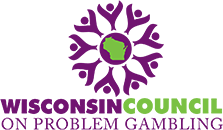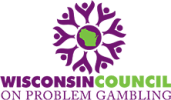Thursday and Friday Workshop
The Hidden Addiction, What That Really Means to Families – Gayle Bigsby and Patricia Jirovetz, ATRL, LPC, ICGC II & Retired Addiction Counselor
As the number of gamblers increases so does the number of families affected by the addiction. Gambling addiction cause severe financial issues, psychological issues, and emotional problems for the families. This effects trust and the functioning of the family. This presentation will explore the devastation this causes for the families. We will hear the personal story of the wife of a gambler and look at how gambling changes the family roles.
Goals and Objectives:
- Increased understanding of that the effects of the gambling addition affects more than just the gambler.
- Finding the hidden addiction in a high functioning alcoholic and increased understanding of family functioning with the progression of the gambling addiction.
- Learn what tools and resources are out there to provide hope and reassurance to the families.
Effectively Addressing Teen Gambling: Screening and Brief Intervention – Scott Caldwell
Because of the prevalence of problem gambling among teenagers, effectively addressing teen gambling should be a routine part of adolescent behavioral health treatment services. In this session, participants will learn how to administer, score, and interpret a well-established screener for teen gambling (the SOGS-RA), then how to have an efficient yet powerful change conversation using a brief intervention protocol. The case will be made for how this approach provides an excellent developmental fit with adolescent treatment.
GOALS/OBJECTIVES
- Learn how to administer, score, and interpret the SOGS-RA screening instrument.
- Be able to identify three elements of brief intervention for teen problem gambling.
- Consider how to integrate screening-brief intervention for teen gambling into routine specialist treatment services.
The Link Between Problem Gambling and Trauma: Clinical Implications- Heather Chapman
Problem gambling often co-occurs with other mental health issues, including trauma and post traumatic stress. Though we didn’t initially understand this co-occurrence, recent studies have begun to uncover this relationship and why those who have experienced trauma are particularly vulnerable to developing a gambling problem. This presentation will review the nature of the problem or co-occurring trauma and gambling disorder as well as outline clinical implications for best practice care.
GOALS/OBJECTIVES
- Participants will learn about the incidence of trauma among those with problem gambling.
- Participants will learn several theories of the co-occurrence of trauma and gambling.
- Participants will learn several evidence based care models in the treatment of those with co-occurring gambling and trauma.
Mindfulness-Based Stress Reduction – Michael Goldman, MA, LPC, CRADC, PCGC, CEAP, SAP
MBSR was developed by Jon Kabat-Zinn in 1979. He took some Eastern philosophies and practices and incorporated them into his pain clinic in Massachusetts. He found that MBSR significantly helped patients cope better with chronic physical and emotional pain. This discipline has been used widely by other clinicians in assisting people with chemical dependency and other process addictions. This training will cover these philosophies and practices while providing practical demonstrations of how it works.
The Power of EMDR in Problem Gambling Treatment – Doug LaBelle, LCSW, ICGC II, CEAP
Uncover the transformative power of EMDR in your clinical work with problem gambling and problem gamblers. Let’s explore the integration of EMDR into addressing trauma-related issues often identified in problem gambling clients. Join us to discover the profound potential of EMDR in fostering healing and lasting recovery for some individuals struggling with problem gambling.
Goals and Objectives:
- Identification, comparison, and discussion of EMDR descriptions from multiple clinical perspectives and various organizations including the American Psychological Association, the National Center for PTSD, the National Institute of Health, and the Veterans Administration.
- Explanation and discussion of EMDR as a safe and effective psychotherapy technique that can be learned and implemented to help and support the treatment process of individuals struggling with problem gambling.
- Identification and discussion of resources, tools, techniques, and specialized training for the implementation of EMDR in a Comprehensive Treatment Process for Problem Gambling.
Effective Co-Occurring Disorders Treatment – Mark Sanders, LCSW, CADC
Topics covered in this skill-building workshop include: A brief history on the two track system for addressing mental illness and addiction; the challenges of accurate diagnosis; six hidden psychiatric disorders common among clients with co-occurring disorders; the interaction between mental illness and process/substance use disorders for clients with co-occurring disorders; the parallel mental health person center recovery movement and the recovery oriented systems of care movement; the strengths and weaknesses of sequential, concurrent and integrated co-occurring disorders treatment; 10 aspects of integrated co-occurring disorders treatment; evidence based approaches for addressing co-occurring disorders treatment; best practices in increasing medication compliance, family involvement and peer based mutual aid attendance.
Objectives: By the end of this presentation, you will be able to:
- Articulate historical reasons mental illness, process addictions and substance use disorders were treated separately.
- Recognize reasons clients with co-occurring disorders should stay in continuous assessment.
- Be cognizant of 6 hidden psychiatric disorders which can lead clients with co-occurring disorders to slip through the cracks.
- Weigh the strengths and weaknesses of 3 types of co-occurring disorders treatment.
- Work with clients with co-occurring disorders more effectively.
- Increase family involvement for clients with co-occurring disorders.
- Identify strategies to help clients with co-occurring disorders avoid slipping through the cracks.
Money, That’s What I (Don’t) Want to Talk About – Andrew Schreier, ICS, CSAC, LPC, BACC, ICGC-II
Money is an essential part of our daily lives. With money often being a high value of importance, it can also become a source of distress. While this is something that can happen to everyone it is particularly important to address finances when it comes to substance use and mental health. Treatment and recovery of gambling focuses particularly on the need to address finances. This comes with difficult conversations, addressing debt-related issues, planning when it comes to managing money, and dealing with the impact gambling has on others.
One barrier to addressing finances with an individual seeking help is a professional’s own discomfort with the topic. What are the boundaries when it comes to giving financial advice? How do I address their financial issues when I struggle with money? What is my responsibility when it comes to addressing the impact of finances when dealing with gambling, substance use, and mental health? It is a necessity and opportunity for growth for professionals to address their comfort with the topic of money and assisting patients in financial recovery.
Goals and Objectives:
- Discover the impact money and finances have when it comes to gambling, mental health, and substance use and how money takes on different meaning to people with disorder diagnosis.
- Conduct ways to self-evaluate own comfort with addressing money with people they serve and identify ways to professionally grow in financial recovery.
- List different resources and tools available to help people when it comes to money and finances.
Random Odds: Futuring Skills for Problem Gambling Insights, James Schreier, Ph.D., SPHR
Futuring skills enable professionals to be more aware and prepared to deal with complex issues, particularly in a world that has become more complex. This is certainly true for the world of gambling, where new challenges are always appearing. The rate of change has also accelerated along with the complexity of almost every issue. Consider sports gambling as an example, where simple options like an office sports pool have exploded into the online world of endless exposure to opportunities.
Professionals are also challenged by a dominance of short-term thinking and acceptance of “unintended consequences.” Leaders around the world call for a “look beyond the short term…to move past the crisis.” And, in the form of both a challenge and an opportunity, artificial intelligence, particularly the explosion of Chatbots, e.g., ChatGPT, has impacted the worlds of both gamblers and professionals working to educate and responsible gambling.
In this highly experiential program, participants will learn about the underlying concepts of future thinking. They will learn and have the opportunity to practice a variety of future thinking tools.
Goals and Objectives:
- Understand and apply the concept of paradigms, paradigm shifts, and paradigm paralysis to both responsible and problem gambling.
Learn and practice tools for tracking and “interrogating” trends, innovations, and issues that will increase awareness, clarity, engagement, and wisdom. - Be introduced to a tool for exploring the positive and negative consequences of gambling-related issues for individuals and organizations.
- Understand how vision and purpose are related to educating and addressing problem gambling.p

